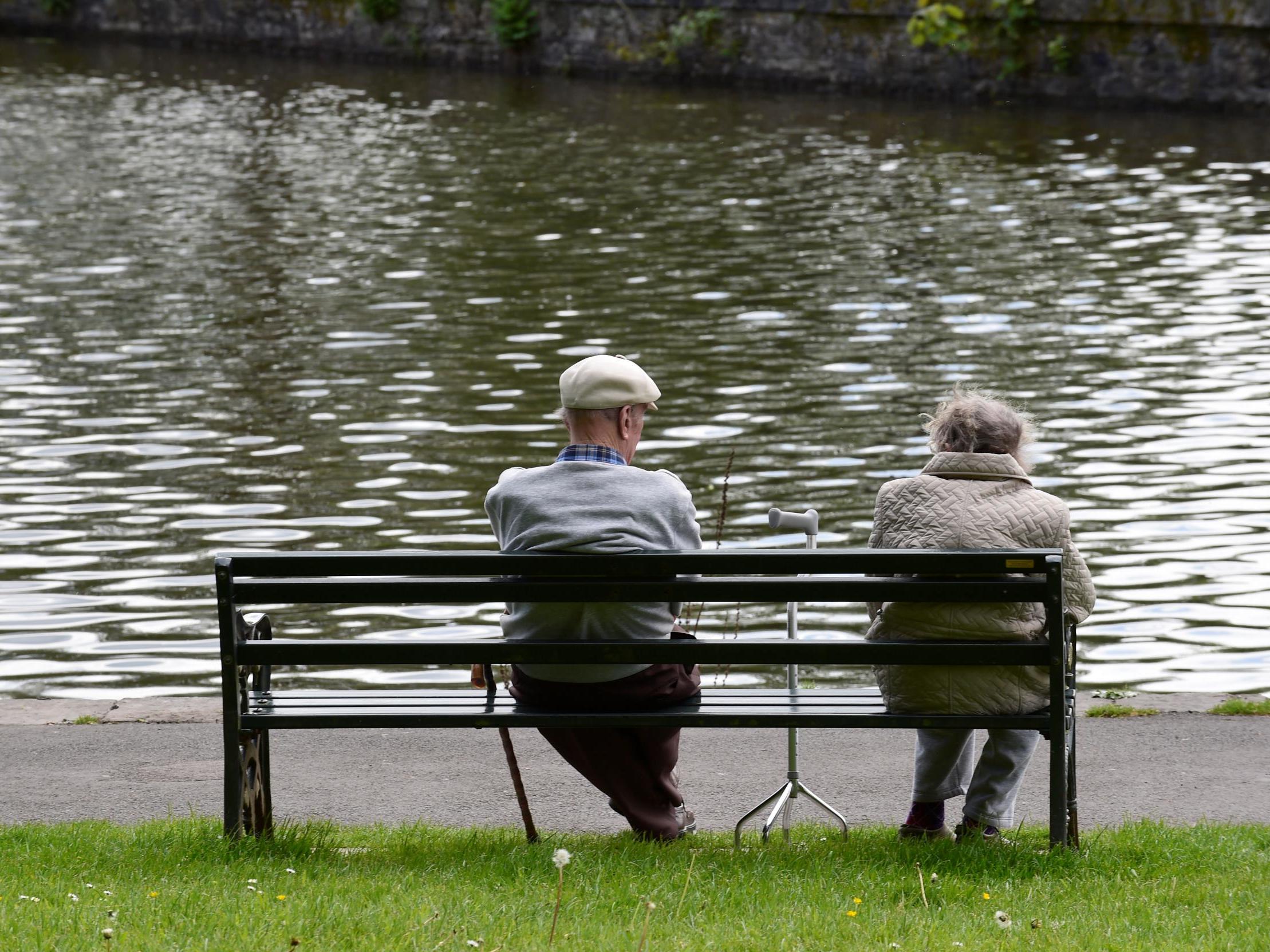NHS 'failing self-harming over-65s' despite suicide risk increasing with age
Charities warn signs of depression in older people are being written off by doctors and inequalities will grow as the spiralling demand for mental health support increases

Your support helps us to tell the story
From reproductive rights to climate change to Big Tech, The Independent is on the ground when the story is developing. Whether it's investigating the financials of Elon Musk's pro-Trump PAC or producing our latest documentary, 'The A Word', which shines a light on the American women fighting for reproductive rights, we know how important it is to parse out the facts from the messaging.
At such a critical moment in US history, we need reporters on the ground. Your donation allows us to keep sending journalists to speak to both sides of the story.
The Independent is trusted by Americans across the entire political spectrum. And unlike many other quality news outlets, we choose not to lock Americans out of our reporting and analysis with paywalls. We believe quality journalism should be available to everyone, paid for by those who can afford it.
Your support makes all the difference.The NHS is not referring the vast majority of older people who self-harm to specialist psychiatric support, despite their chances of committing suicide significantly increasing, a study has found.
Researchers from the University of Manchester found that over-65s whose medical records showed reported self-harm were 20 times more likely to die from suicide in the following year – but just 12 per cent were referred to psychiatric specialists.
Over the entire 13 year follow up period, unnatural deaths – predominantly suicides – were 145 times higher among older people who self-harmed.
Although suicides are rare among over-65s, the findings, published in the journal Lancet Psychiatry on Monday, suggests an urgent need to prioritise the age group for support – particularly as they are referred at a lower rate than younger adults who self-harm, the study warns.
“Self-harm is a stronger risk factor for suicide in older people than it is in younger people,” Nav Kapur, professor of psychiatry at the University of Manchester told The Independent.
“In previous studies of adults aged 15 to 64, around 15 per cent of people who self-harmed were referred – rather than 10 to 12 per cent we saw.”
“We sometimes think of self-harm as a problem in younger people – but it affects older adults too.
“Depression, low mood, suicidal behaviour at any age needs to be taken seriously,” he added. “At a young age you’ve got to do a proper assessment and see what’s behind it, at an old age that’s equally if not more important because there’s potentially other things going on.”
Professor Kapur and his colleagues are calling for GPs and the NHS to do more to close the gap, particularly in poorer areas with other health inequalities.
The study showed that referrals to specialist support were up to 30 per cent lower in the most deprived areas, when compared to the most affluent. Just 8 per cent of older people were referred after an episode of self-harm in these areas despite rates being higher.
Charities have warned that too often signs of depression are written off by doctors and inequalities are set to grow with spiralling demand for mental health support.
“Sadly these findings fit with what we know about older people’s access to mental health care,” said Caroline Abrahams, charity director at Age UK.
“Many of the risk factors for depression increase as we get older – bereavement, poor physical health and loneliness can all lead to depression and poor mental wellbeing.
“Yet too many older people living with mental illness are often told, quite incorrectly, that it is just part of the ageing process.
“Unless the government ensures these pressures are urgently addressed and sustainable funding actually reaches the frontline, significant numbers of older people are going to continue to miss out on the support they desperately need to live well.”
In 2015 the suicide rate among men aged 60 and over was 14.8 deaths per 100,000, nearly 50 per cent higher than the rate for males in their teens and 20s. Suicides are increasing among older women at a faster rate than in younger females as well.
The Lancet study tracked cases from 674 UK general practices and identified 4,124 patients aged 65 and older with a note of self-harm in their medical record between 2001 and 2014.
To understand rates of suicide they compared these with 48,921 patients of similar age and gender but with no record of self-harm. In the 12 months after self-harm was recorded 29 out of 330 deaths were down to suicide in the self-harm group, compared to 41 out of 2,415 deaths in the general population.
In the 13-year follow up period there were 36 suicides among the self-harm group, compared to 12 in the general population – a rate 145 times higher.
The most common method of self-harm was overdose, in 81 per cent of cases, followed by self-cutting in six per cent of cases, with one in seven of the latter group self-harming again within 12 months.
This suggests another way GPs can support patients, the report said.
“Since drug ingestion is one of the main methods of self-harm, we highlight the need to prescribe less toxic medication in older adults for the management of both mental illness and pain related conditions,” said Carolyn Chew-Graham, professor at Keele University and a co-author of the study.
Join our commenting forum
Join thought-provoking conversations, follow other Independent readers and see their replies
Comments